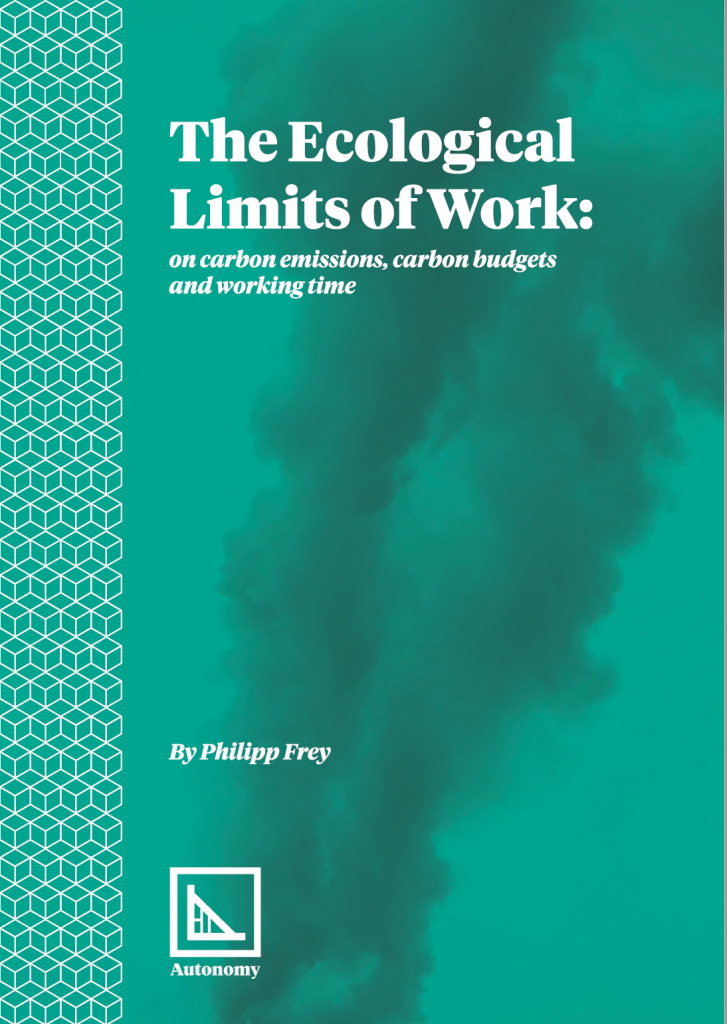Working time and climate change
Work creates values, goods, services – and greenhouse gas emissions. So how much would we be allowed to work to stop global warming and its potentially dramatic consequences? Philipp Frey, a doctoral student at ITAS conducting research on technology and work, has examined this question. The result of his study: Based on current emissions levels, German employees would only be allowed to work six hours a week in order to meet the 2-degree target – the official target of the European Union. The UK would have to cut its working hours to nine and Sweden to 12 a week to meet this target.
Relationship between emissions and economic output
For his calculations, Philipp Frey compared two sets of data collected by the Organisation for Economic Co-operation and Development (OECD): the value added per hour worked in the respective country and the carbon intensity of the respective economy, that is, the amount of CO2 equivalents emitted (besides CO2, greenhouse gases such as methane or nitrous oxide are emitted) per 1,000 euros of economic output.
According to Frey, the fact that the lowest number of working hours per week would be “allowed” in Germany is attributable to the strong industrial sector. The UK has a comparatively strong service sector; in Sweden, emissions per working hour are lower due to the large share of renewable energies.
Thinking about working time models
“It would be too one-dimensional to concentrate exclusively on the working time to solve the climate crisis; a variety of measures are needed here,” says Philipp Frey. The aim of his study is rather to illustrate the challenges related to the climate crisis and to raise awareness of the connection between working hours and CO2 emissions. In the transition to a more sustainable economy, we also need to think about a reduction in working hours. Elsewhere, for instance in the UK, there is already intense debate about a four-day week in this spirit. In Germany, this debate is still in its infancy.
The study, originally conducted for the British think tank Autonomy, was published in May 2019. (03.07.2019)
Further information:
- “The Ecological Limits of Work: on carbon emissions, carbon budgets and working time“ by Philipp Frey (Full-text PDF)
- International press coverage


